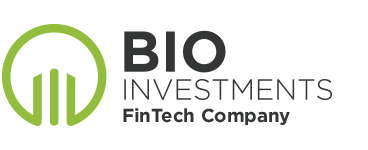In our Expert Takes, opinion leaders from inside and outside the crypto industry express their views, share their experience and give professional advice. Expert Takes cover everything from Blockchain technology and ICO funding to taxation, regulation, and cryptocurrency adoption by different sectors of the economy.
If you would like to contribute an Expert Take, please email your ideas and CV to a.mcqueen@cointelegraph.com
The topic of cryptocurrency/ICO regulation is high on the world’s agenda these days. Last week, at a two-day meeting in Madrid, Spain, the International Organization of Securities Commissions (IOSCO) Board, which consists of 32 of the world’s market regulators, unanimously agreed that a deep analysis of the nature of cryptocurrencies was required to devise regulations to protect investor rights. On March 19 the G20 Finance Ministers and Central Bank Governors will meet in Buenos Aires, Argentina, and on April 20 in Washington DC to discuss the same topic some more.
EU Commission’s proposed digital tax on tech giants
Meanwhile, the EU Commission has proposed a temporary EU-wide tax on digital companies with revenues above 750 mln euros ($922 mln) worldwide and with EU digital revenues of at least 10 mln euros a year. Excluded from the tax is revenue from electronically supplied media, streaming, online gaming, IT solutions, cloud computing services, and “fintech” activities. The Commission’s proposal is subject to changes before its publication which is expected in the second half of March.
The temporary cross-border tax of one to five percent would apply to digital transactions within the EU, between EU countries and third party countries, and to purely domestic digital transactions based on where their users are located, rather than where companies are headquartered. It will reduce the appeal of smaller low-tax states until a more comprehensive solution is established for a new digital tax nexus within the existing corporate income tax framework. Commission’s temporary digital tax proposal resembles a concept of nexus by “cookie” (Internet cookie, that is) which may not constitute the “traditional” kind of physical presence nexus test as defined under OECD Model Tax Conventions. The proposed tax will not be a transaction-by-transaction tax, but instead calculated by the business’s aggregated gross online revenues that meet the defined thresholds. The Commission would seek international agreement on a permanent tax plan through an update of the OECD Model Tax Convention. Once an agreement is reached on long-term tax rules, the short-term measures would cease to apply.
To minimize tax compliance burdens, for greater efficiency and better compliance the Commission may introduce a simplification mechanism based on the one-stop-shop model for declaring and collecting the tax at EU level.
Blockchain applications to tax administration
“Blockchain is, without a doubt, one of the most promising technologies for tax administration because of its ability to deliver reliable real-time tax information, by not only changing the relationship between taxpayers and tax authorities but also altering the way we register taxes or submit and store information, especially on an international level,” explained Victor Sint Nicolaas of Summitto, a Dutch startup that is developing a Blockchain Value Added Tax (VAT) system.
Sint Nicolaas explained:
“The potential of digitizing taxes has been noticed by EU countries, some of which have adopted Standard Audit File for Tax as a means to file tax returns electronically. EU countries are looking for ways to improve VAT collection, since it is the largest contribution to government budgets. Currently, the EU VAT system loses 50 bln euros annually to missing trader fraud, through which fraudulent companies collect VAT which they never return to the government. If transactions were recorded on a distributed ledger, tax authorities can know with certainty how much VAT is due, which reduces the risk of fraud. Furthermore, the global registration can make it easier for businesses to use invoices for other financial services.”
In the US, after the Internal Revenue Service (IRS) issued guidance stating that it would tax cryptocurrencies as property, Libra, a startup Blockchain company located in New York, began developing a cryptocurrency and Blockchain-oriented accounting and tax software.
“LibraTax tracks crypto activity and establishes a cost basis to calculate capital gains and losses and report taxable events. It automatically synchronizes exchange trades, wallet and cryptocurrency Blockchain transactions, establishes cost basis values for Bitcoin, Ethereum, Bitcoin Cash, Litecoin, Ripple, Monero, Zcash and generates reports on acquisitions, disposals, balances, tax lots, for purposes of US Tax Form 8949” explained Jeremy Drane, LibraTax’s Chief Commercial Officer.
LibraTax is available to taxpayers for free in 2018, he added. The software may come in handy to the 13,000 customers of Coinbase who have been informed of the imminent data handover of transaction records from 2013-2015 to the IRS.
Another Blockchain-based accounting platform developing tax systems focused on taxing crypto for ICOs is Balanc3, the part of New York-based development studio ConsenSys.
The accounting system covers more than just tax such as financial reports, bookkeeping, invoice tracking, payroll management and portfolio analysis. Griffin Anderson, Founder of Balanc3 explains that the Balanc3 platform gives users the ability to track cryptocurrency/token transfers and compile live financial reports which translate this data into formats that are well-understood by accountants, regulators and the IRS. The developer plans to make the product available for customers, including exchanges and crypto funds, later this year.
Anderson adds that “The Balanc3 team is also behind the Accounting Blockchain Coalition, which is the go-to group for determining the tax treatment of cryptocurrencies. They are addressing issues such as to how to tax forks, airdrops, and like-kind exchanges.”
Blockchain technologies and unprecedented global transparency laws are helping to accelerate changes in the way businesses manage tax. One thing is for certain, the tax function for governments, companies, and individuals will look very different in the future.
The views and interpretations in this article are those of the author and do not necessarily represent the views of Cointelegraph.
Selva Ozelli, Esq., CPA is an international tax attorney and CPA who frequently writes about tax, legal and accounting issues for TaxNotes, Bloomberg BNA, other publications and the OECD.

